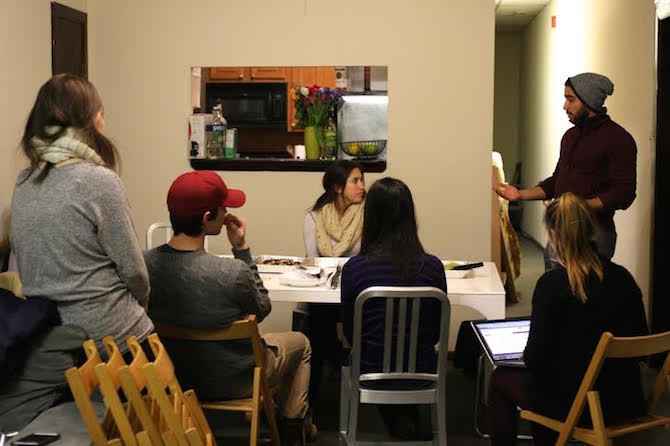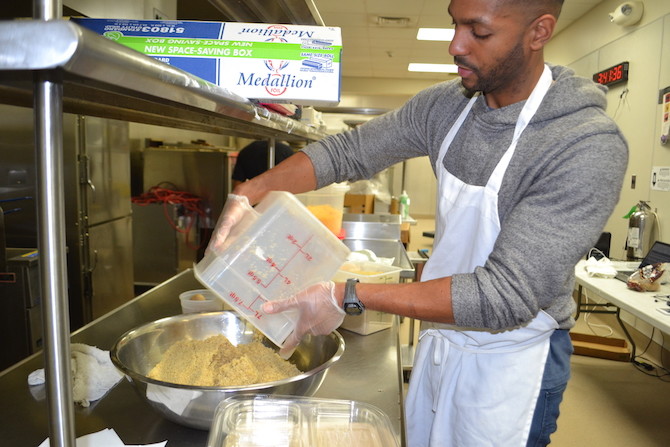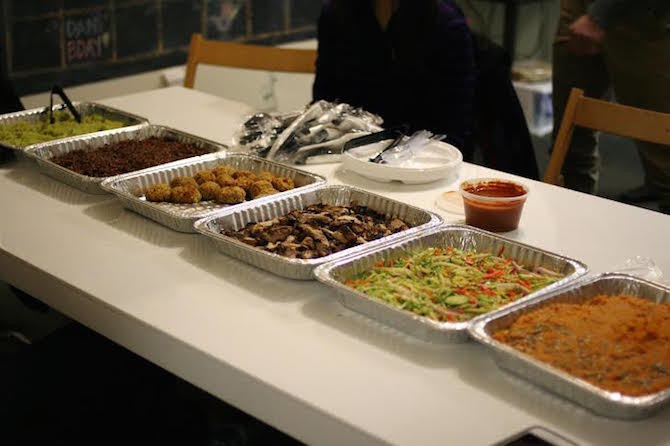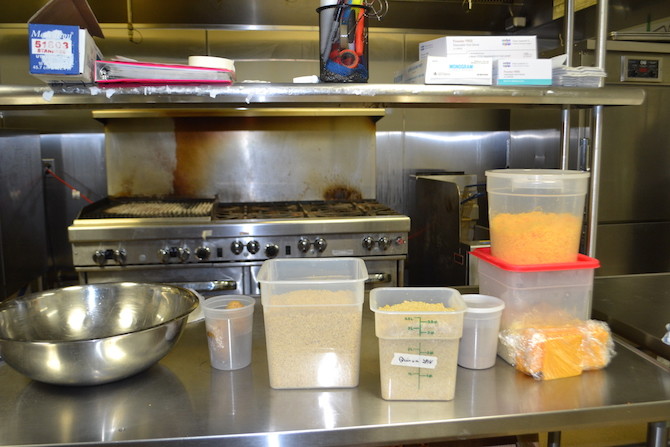Penn alums do pretty cool things. Amir Fardshisheh and Kalefe Wright were two Wharton MBA’s studying finance and entrepreneurship, respectively, when they decided that the food available around campus just wasn’t food they wanted to be eating. They took the tools Wharton had provided them and their mutual interest in eating healthy in order to create Herban Quality Eats, a fast-casual, reasonably-priced restaurant ($8.80-$12) that uses ingredients from sustainable sources to make hearty, healthy dishes. Think big family buffet level of options with things like coconut milk and sesame seed sweet potato mash instead of your aunt’s creamy, bacon-stuffed potatoes that are tempting but you know you prob shouldn’t have.
We were lucky enough to get the inside scoop from each of the owners. We met Amir when he delivered a delicious meal to the Spoon team and Kalefe while literally standing in their kitchen. If you haven’t heard of Herban, you should probably order it in right now, and if you have, we found out the answers to any and all questions you might have.

Photo by Dina Zaret
Is Herban only delivery?
As a new restaurant, Herban needed to start out and perfect its food before really opening up. Currently Herban only offers delivery (and catering) to locations in University City through its online system, but plans on opening a storefront at 3601 Market Street in September (yes!). Unfortunately, Herban will be closing starting April 10th (nooo), which means you should act fast and get your last Herban in before the summer.
Where is the food cooked then?

Photo by Ella Rubin
Amir, Kalefe, their amazing head Chris Paul, and staff spend afternoons and evenings prepping at the Dorrance H. Hamilton Center for Culinary Enterprises on 48th and Spruce. The center is an incubator for restauranteurs like the founders, and offers them the use of one of theirs kitchens for a reasonable hourly rent.
How did they come up with the menu?

Photo by Dina Zaret
The founders relied on Chris and their own taste buds to come up with a menu that would make them full (none of that lettuce-only business), be healthy, use simple recipes, avoid unhealthy cooking methods or ingredients, and rival any other option. As Kalefe put it, “I wanted my chicken to go up against any fried chicken. We shouldn’t have to sacrifice flavor to be healthy.” Click here for their spot-on menu.
How did they perfect the menu?
Testing and tasting with campus organizations, family, and friends. They wanted to make sure the menu traveled well (e.g.: ended up with braised beef not flank steak) and was what people wanted to eat (oatmeal chocolate chip vegan cookies not oatmeal raison…duh).
What about those ingredients?

Photo by Ella Rubin
Herban is all about “clean” ingredients. This means no antibiotics, no hormones, 100% grass-fed, and nothing artificial. This means they, as Wharton students do, did a ton of research to make sure they were sourcing food from sustainable vendors that were reliable and priced decently. The recipes also include healthy grains (think quinoa), lean proteins, and natural cooking oils with moderate salt and sugar.
How did they founders learn how to run the business?
Amir and Kalefe got down and dirty. They worked at Shake Shack and Chipotle for a few months to really understand how to run a fast-casual restaurant–true dedication. They also relied on their own desire to cook for themselves and create food people like them want to eat.
What’s the future of Herban?
Herban is developing, and its physical restaurant is sure to be a hit. The owners, however, have even loftier goals. They want to be the next fast-casual chain that will sweep college campuses. We’re positive they have what it takes.


